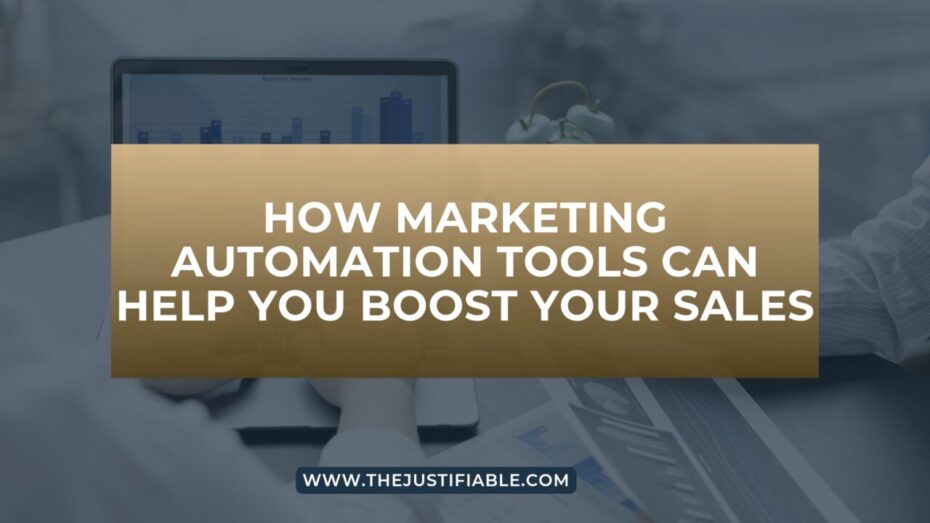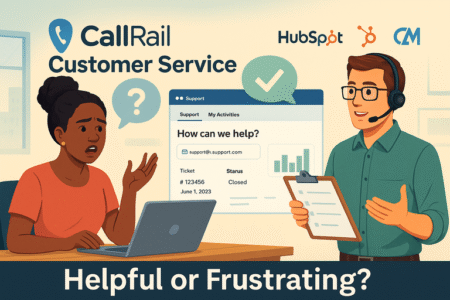Table of Contents
Marketing automation tools have emerged as a vital solution to help businesses streamline their marketing processes, nurture leads, and ultimately boost sales.
This comprehensive guide will explore the ins and outs of marketing automation tools, their types, features, benefits, and how they can transform your marketing campaigns, improve customer engagement, and drive sales growth.
What are Marketing Automation Tools?
Marketing automation tools are software platforms designed to help businesses automate, streamline, and optimize their marketing efforts across multiple channels.
These tools enable businesses to manage various marketing activities, such as email marketing, lead generation, customer relationship management, and social media marketing, with minimal manual intervention.
By leveraging marketing automation tools, businesses can save time, resources, and improve their overall marketing performance, ultimately boosting sales and driving growth.
Key Features of Marketing Automation Tools
Marketing automation tools offer a wide range of features that cater to various marketing tasks and objectives. Some of the key features include email marketing, lead generation, customer relationship management (CRM), analytics, personalization, segmentation, social media marketing, landing pages, A/B testing, and conversion optimization.
These features help businesses automate and manage their marketing campaigns more effectively, monitor and analyze customer interactions and preferences, and make data-driven decisions to improve their overall marketing performance.
Benefits of Using Marketing Automation Tools
Using marketing automation tools can provide numerous benefits to businesses, such as increased efficiency, productivity, and sales. By automating repetitive tasks, businesses can save time and resources, allowing them to focus on more strategic marketing activities.
Marketing automation tools also help in nurturing leads through personalized and timely communication, improving customer engagement, and driving conversions. Additionally, these tools provide valuable insights and analytics that enable businesses to make data-driven decisions, optimize their marketing campaigns, and achieve better ROI.
Types of Marketing Automation Tools
There are several types of marketing automation tools available, each catering to specific marketing needs and objectives. These tools include customer relationship management (CRM) systems, email marketing platforms, lead generation tools, sales funnel management, analytics software, and more.
By selecting the appropriate tools for their unique marketing requirements, businesses can streamline processes, optimize campaigns, and ultimately enhance their overall marketing performance, driving sales and fostering growth.
Customer Relationship Management (CRM)
Customer Relationship Management (CRM) tools are a type of marketing automation tool designed to manage and analyze customer interactions and data throughout the customer lifecycle. CRM tools help businesses build strong relationships with their customers, improve customer retention, and drive sales growth.
By consolidating customer information into a centralized database, businesses can better understand their customers’ needs, preferences, and behaviors, allowing them to tailor their marketing efforts and improve customer satisfaction.
Email Marketing
Email marketing tools are an essential component of marketing automation, enabling businesses to create, send, and track personalized email campaigns to their customers and prospects.
These tools often provide pre-built templates, segmentation capabilities, and analytics to help businesses optimize their email campaigns for higher open rates, click-through rates, and conversions. Email marketing tools can significantly improve a business’s communication with its audience, nurture leads, and ultimately drive sales.
Lead Generation
Lead generation tools are designed to help businesses attract and capture potential customers’ information, turning them into leads for their sales teams to pursue. These tools often include features such as forms, pop-ups, and landing pages to collect visitor information, as well as lead scoring and nurturing capabilities to prioritize and engage leads effectively.
By using lead generation tools, businesses can streamline their lead acquisition process and improve the quality and quantity of their sales leads.
Sales Funnel
Sales funnel tools help businesses visualize and manage the various stages of the customer journey, from awareness to conversion. By understanding and optimizing each stage of the sales funnel, businesses can more effectively guide their prospects through the buying process and increase the likelihood of converting them into customers.
Sales funnel tools often include features such as lead scoring, pipeline management, and conversion tracking, allowing businesses to make data-driven decisions and improve their overall sales performance.
Analytics
Analytics tools are a crucial component of marketing automation, providing businesses with valuable insights into the performance of their marketing campaigns and customer behaviors.
These tools help businesses track and analyze various metrics, such as website traffic, conversion rates, click-through rates, and more. By leveraging analytics tools, businesses can identify areas of improvement, optimize their marketing strategies, and ultimately increase their ROI.
Workflow Automation
Workflow automation tools enable businesses to create and automate complex marketing workflows, streamlining their processes, and ensuring consistency across campaigns.
These tools often provide drag-and-drop interfaces that make it easy to design and automate a variety of marketing activities, such as email campaigns, social media posting, and lead nurturing.
Workflow automation tools help businesses save time and resources, allowing them to focus on more strategic marketing activities.
Personalization
Personalization tools allow businesses to tailor their marketing messages and content to individual customers based on their preferences, behaviors, and demographic information. These tools often use data collected from various sources, such as CRM systems and website analytics, to create personalized marketing experiences.
By leveraging personalization tools, businesses can improve customer engagement, build stronger relationships, and drive higher conversion rates.
Segmentation
Segmentation tools help businesses group their customers and prospects based on specific criteria, such as demographics, behaviors, or preferences. By segmenting their audience, businesses can create more targeted and relevant marketing campaigns, leading to improved customer engagement and conversion rates.
Segmentation tools often integrate with other marketing automation tools, such as email marketing and CRM systems, to provide seamless audience targeting across various channels.
Landing Pages
Landing page tools enable businesses to create and optimize dedicated web pages designed to convert visitors into leads or customers. These tools often provide pre-built templates, drag-and-drop editors, and A/B testing capabilities, making it easy for businesses to design and test effective landing pages. By using landing page tools, businesses can improve their lead generation efforts and increase their overall conversion rates.
Social Media Marketing
Social media marketing tools help businesses manage and automate their social media presence across various platforms, such as Facebook, Twitter, and Instagram. These tools enable businesses to schedule posts, monitor engagement, and analyze their social media performance.
By leveraging social media marketing tools, businesses can improve their brand awareness, engage with their audience, and drive traffic to their website.
A/B Testing
A/B testing tools allow businesses to test different variations of their marketing content, such as email subject lines, landing page designs, or ad creatives, to determine which version performs better.
By conducting A/B tests, businesses can make data-driven decisions and optimize their marketing campaigns for higher engagement, conversion rates, and ROI.
Conversion Optimization
Conversion optimization tools help businesses identify and address barriers that may prevent their website visitors from converting into leads or customers.
These tools often include features such as heatmaps, visitor recordings, and form analytics to provide insights into user behavior and identify areas of improvement.
By using conversion optimization tools, businesses can enhance their website’s user experience and increase their conversion rates.
E-commerce Integration
E-commerce integration tools enable businesses to connect their marketing automation platforms with their e-commerce systems, allowing them to automate and optimize various marketing and sales activities.
These integrations can help businesses manage their inventory, automate order processing, and track customer data, leading to more efficient and streamlined e-commerce operations.
How Marketing Automation Tools Can Help Boost Your Sales
Marketing automation tools can significantly boost sales by automating and streamlining marketing processes, nurturing leads, improving customer engagement, and optimizing marketing campaigns. These tools help businesses save time and resources while increasing efficiency and productivity, ultimately leading to better marketing performance and sales growth.
By leveraging marketing automation tools, businesses can create more targeted and personalized experiences for their customers, driving higher conversion rates and fostering long-term growth.
Streamlining Marketing Processes
Marketing automation tools help businesses streamline their marketing processes by automating repetitive tasks and managing various marketing activities more efficiently.
By reducing manual work and human errors, businesses can save time and resources, allowing them to focus on more strategic marketing initiatives. Streamlined marketing processes result in a more consistent and effective marketing approach, ultimately leading to increased sales.
Nurturing Leads
Lead nurturing is a crucial aspect of the sales process, as it helps businesses engage with prospects and guide them through the sales funnel.
Marketing automation tools provide features such as personalized email campaigns, lead scoring, and targeted content, enabling businesses to build relationships with their leads, maintain their interest, and drive them towards conversion.
Nurtured leads are more likely to become loyal customers, resulting in increased sales.
Improving Customer Engagement
Marketing automation tools help businesses improve customer engagement by delivering personalized and relevant content across multiple channels.
By segmenting their audience and tailoring their marketing messages, businesses can create more meaningful interactions with their customers, fostering stronger relationships, and increasing brand loyalty. Improved customer engagement leads to higher conversion rates, repeat purchases, and ultimately, increased sales.
Analyzing Marketing Performance
One of the most significant benefits of marketing automation tools is the ability to track and analyze marketing performance. By providing businesses with valuable insights and data, these tools enable them to make data-driven decisions and optimize their marketing strategies.
Analyzing marketing performance helps businesses identify areas of improvement, eliminate ineffective tactics, and focus on activities that yield the highest ROI, ultimately boosting sales.
Enhancing Personalization
Personalization is a powerful marketing tactic that can significantly improve customer engagement and drive sales. Marketing automation tools enable businesses to collect and analyze customer data, allowing them to create personalized experiences based on their customers’ preferences, behaviors, and demographic information.
Enhanced personalization leads to more relevant marketing messages, increased customer satisfaction, and higher conversion rates, contributing to sales growth.
Optimizing Marketing Campaigns
Marketing automation tools help businesses optimize their marketing campaigns by providing features such as A/B testing, analytics, and conversion optimization. By continuously testing and refining their marketing content and strategies, businesses can identify the most effective tactics and allocate their resources more efficiently.
Optimized marketing campaigns result in higher engagement, conversion rates, and ultimately, increased sales.
Increasing Efficiency and Productivity
By automating repetitive tasks and streamlining marketing processes, marketing automation tools help businesses increase their efficiency and productivity. Increased efficiency enables businesses to focus on more strategic activities, such as developing new products, exploring new markets, or improving customer service. Higher productivity and efficiency lead to better overall business performance and increased sales.
Choosing the Right Marketing Automation Tool
Choosing the right marketing automation tool is crucial for maximizing its benefits and driving sales growth. Businesses should identify their marketing needs and objectives, assess the features and functionalities of various platforms, evaluate pricing and support options, and consider integration and compatibility with existing software systems.
By selecting a tool that aligns with their unique requirements and strategies, businesses can efficiently leverage marketing automation to optimize their marketing efforts and achieve desired results.
Identifying Your Marketing Needs
Before selecting a marketing automation tool, businesses should first identify their marketing needs and objectives. By understanding their specific goals and requirements, businesses can narrow down their options and choose a tool that aligns with their marketing strategies and provides the necessary features and functionalities.
Assessing the Features and Functionality
When evaluating marketing automation tools, businesses should carefully assess the features and functionalities offered by each platform. It is essential to ensure that the tool can accommodate the business’s marketing needs and scale with its growth.
Businesses should also consider the tool’s ease of use, as a user-friendly interface can significantly impact its adoption and effectiveness.
Evaluating the Pricing and Support Options
Pricing and support options are crucial factors to consider when choosing a marketing automation tool. Businesses should compare the costs and features of various platforms to find the one that provides the best value for their investment.
Additionally, it is essential to ensure that the tool offers adequate support, such as live chat, phone support, or a comprehensive knowledge base, to assist users when they encounter issues or need guidance.
Considering Integration and Compatibility
Marketing automation tools often need to integrate with other software systems, such as CRM, e-commerce platforms, or analytics tools. Businesses should ensure that the marketing automation tool they choose is compatible with their existing software and can seamlessly integrate with other essential tools.
Integration and compatibility are critical for maintaining a smooth and efficient marketing workflow, ultimately contributing to increased sales.
Best Practices for Implementing Marketing Automation Tools
Implementing marketing automation tools effectively requires following best practices, such as defining clear goals and objectives, building and segmenting your customer database, creating engaging and relevant content, automating workflows and campaigns, and continuously analyzing and optimizing marketing strategies.
By adhering to these best practices, businesses can ensure they maximize the benefits of their marketing automation tools, driving efficiency, productivity, and ultimately, sales growth.
Defining Your Goals and Objectives
Before implementing a marketing automation tool, businesses should clearly define their marketing goals and objectives. Establishing clear goals ensures that businesses can effectively leverage the tool’s capabilities, measure their progress, and achieve the desired results.
Building and Segmenting Your Customer Database
A well-organized and segmented customer database is crucial for successful marketing automation. Businesses should invest time in building and maintaining their customer database, ensuring that they collect relevant information and segment their audience based on specific criteria.
Proper segmentation allows businesses to create targeted and relevant marketing campaigns, leading to improved customer engagement and increased sales.
Creating Engaging and Relevant Content
Content is the foundation of any successful marketing campaign. Businesses should focus on creating engaging and relevant content that resonates with their target audience and addresses their needs and preferences. By providing valuable and informative content, businesses can build trust with their audience, foster strong relationships, and drive sales.
Automating Workflows and Campaigns
Marketing automation tools provide businesses with the ability to automate complex workflows and campaigns. Businesses should take advantage of these capabilities by automating repetitive tasks and streamlining their marketing processes.
Automated workflows and campaigns can save time and resources, allowing businesses to focus on more strategic activities and improve their overall marketing performance.
Analyzing and Optimizing Your Marketing Strategies
Continuous analysis and optimization are critical for successful marketing automation. Businesses should regularly monitor and analyze their marketing performance, using the insights gathered to refine their strategies and make data-driven decisions.
By constantly optimizing their marketing efforts, businesses can ensure they achieve the highest ROI and drive sales growth.
Recap of Benefits of Marketing Automation Tools
Marketing automation tools offer numerous benefits to businesses, such as streamlining marketing processes, nurturing leads, improving customer engagement, and optimizing marketing campaigns. By leveraging these tools, businesses can achieve increased efficiency, productivity, and sales, ultimately contributing to their growth and success.
Future Trends in Marketing Automation Tools
As marketing automation technology continues to evolve, businesses can expect to see more advanced features, integrations, and AI-driven capabilities in future tools. These advancements will further enhance the effectiveness of marketing automation tools, enabling businesses to deliver even more personalized and relevant experiences to their customers.
Final Thoughts and Recommendations
Implementing marketing automation tools can significantly transform a business’s marketing efforts and drive sales growth. However, it is essential to choose the right tool, understand its capabilities, and follow best practices to ensure success.
By investing time and resources in marketing automation, businesses can optimize their marketing strategies, improve customer engagement, and achieve long-term growth.






